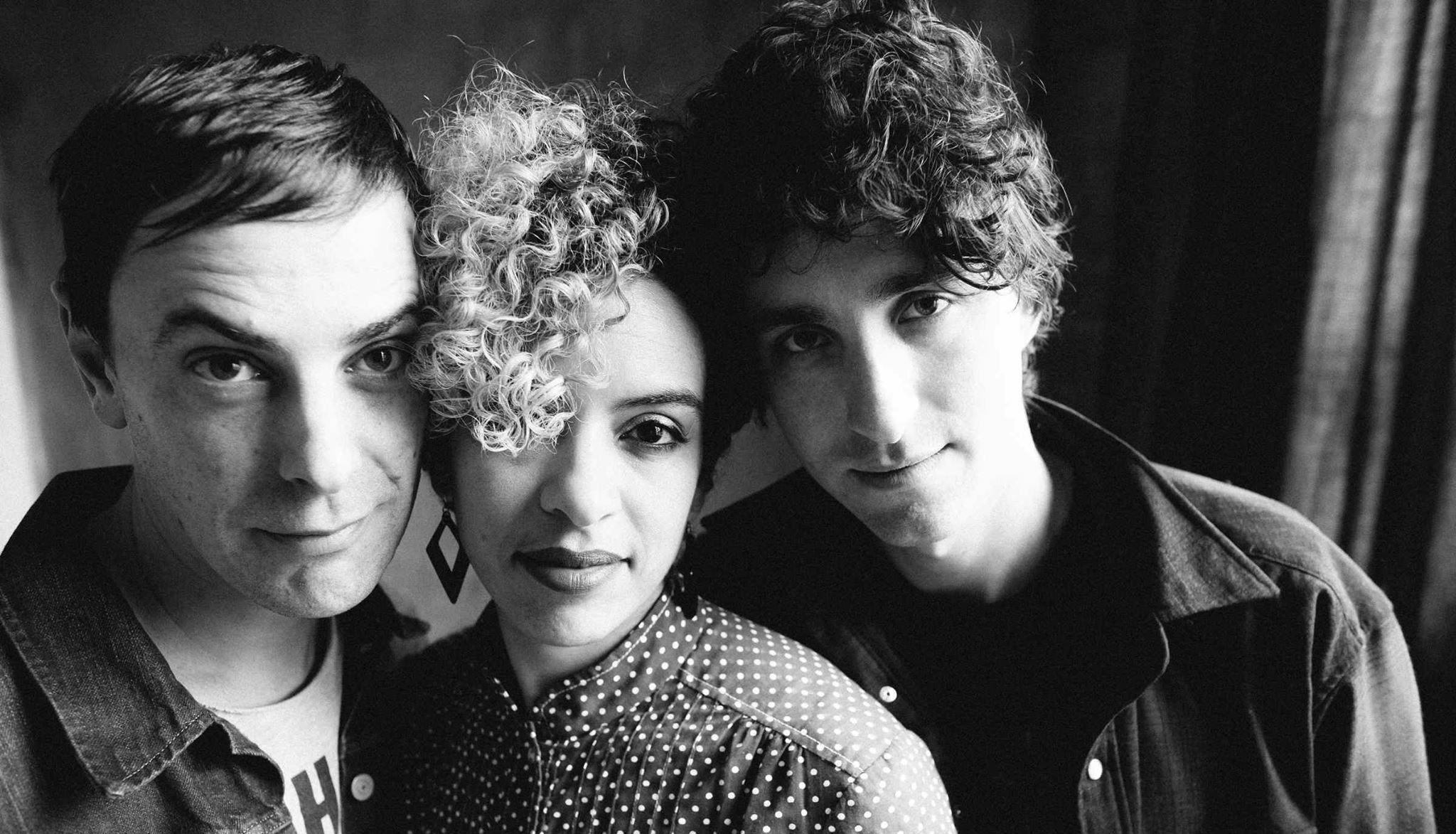I stood in Coconuts Music with twitching fingers, trying to map out the most efficient course of action. I was sixteen, and my mom, though quick to help nurse my burgeoning CD collection, would only stand so much of me flitting between the bins “just to check one more thing.”
On this particular trip, no CD was more paramount than The Body, The Blood, The Machine by The Thermals. I had spent months combing over the racks and bins of my local FYE and Best Buy hoping to spy its orange and red cover, all thanks to an incendiary anthem I’d heard called “Here’s Your Future.”
The first time I heard “Here’s Your Future” was quickly followed by the twentieth time I heard “Here’s Your Future.” It’s a short tune, but it cracked my teenage skull wide open. In it, frontman Hutch Harris climbs an apocalyptic pulpit to act as the voice of a tyrannical, punishing Christian God who floods the world before lighting it aflame with a sneering indictment: “Here’s your future. It’s gonna rain.”
I grew up in the Conservative Bible Belt, smack dab in the Heart of Dixie, so that depiction of God—as a remorseless brute with achievements that had no business being praised in a Sunday School class—fanned the flames of a growing disbelief that, at that age, I was regularly obnoxious about.
I must’ve babbled about the album to my mom, because after about ten minutes of stalling, she called me over, a jewel case depicting Jesus with his eyes blacked out in her hand. In a moment of unfiltered adolescence, my knees buckled beneath me as I let out an extremely disruptive “yes!” in the middle of this very public store, my mother pleading with me to please get the hell up. To finally have access to the rest of this decidedly anti-holy text of an album felt like a confirmation: It was physical proof that there were people out there whose job was making the controversial beliefs and convictions I was developing sound as triumphant as possible. Goddamn.
The Thermals, who announced their sudden but amicable breakup this week, consisted of Harris, bassist Kathy Foster, and drummer Westin Glass. Harris and Foster formed the band in 2002 after playing in a few other groups together, most notably as an un-Thermals-like folk duo called Hutch & Kathy.
The Body, The Blood, The Machine was proof that there were people out there whose job was making the controversial beliefs I was developing sound as triumphant as possible.
Legend has it, Death Cab for Cutie’s Ben Gibbard heard The Thermals’ demo and got them in touch with Sub Pop. There, they released the scrappy statement of purpose More Parts Per Million (2003), the gut punching Fuckin’ A (2004) and immortal hellraiser The Body, The Blood, The Machine (2006). They then jumped to Kill Rock Stars, recruited Westin as their permanent drummer, and released their deepest, most existential record Now We Can See (2009) and the intimate, slightly experimental Personal Life (2010). They made their final home with Saddle Creek and released the lean Desperate Ground (2013), and, as their surprise finale, the suspiciously titled We Disappear (2016). It’s a shame. The Thermals are a hell of a band to lose at a time when righteous indignation from a young generation is offering the greatest push toward progress.
In between records, they toured the world and led sweaty crowds in clubs to scream back several memorable lines of righteous indignation and political outrage, including:
– “They can tell me what to read / They can tell me what to eat / They can beat me and send me the bill / But they tell me what to feel?/ I might need you to kill!”
– “Our enemies lie dead on the ground and still we kick”
– “Pray for a new age / Pray for information / I can hope, see? / Even if I don’t believe”
Their main and best mode was loud and fast, but their lyrics—even at their most blunt—kept a sense of nuance: The Body, The Blood is most definitely a middle-finger to theocratic political tendencies, but it’s also a healthy dose of bloodied and bruised hope. It’s the same case for Now We Can See—maybe Harris’s highest lyrical accomplishment to date.
That album is, squarely, all about death, dying, and being dead. But a few spins reveals clever takes on the pitfalls of routine existence (“Liquid In, Liquid Out,” “When We Were Alive”), the clarity of hindsight (“We Were Sick,” “Now We Can See”), and the grace found in accepting our inevitable, eventual demise (“When I Died,” “You Dissolve”). This is the album they wrote nearly ten years before their breakup, mind you. It stands to reason that The Thermals were well prepared for their last hurrah long before we were.
“Eventually,” Harris explained during a live episode of the podcast Song Exploder in 2014, “what represented the Thermals the best was: Everything is kind of falling apart, and everything is just madness, but it’s more of a celebration of it as opposed to letting it get you down.” Given that quote, it makes complete that sense that, after releasing a generous and thankful joint statement announcing their end, The Thermals celebrated by taking shots at now-former (again) Fleetwood Mac guitarist Lindsey Buckingham for attempting to steal their thunder, joking that they needed to update their LinkedIn accounts.
Rather than let the world and its growing list of troubles burn them out, the trio is fading away, happy and celebrating, on their own terms. Here’s to your future, Thermals. FL









